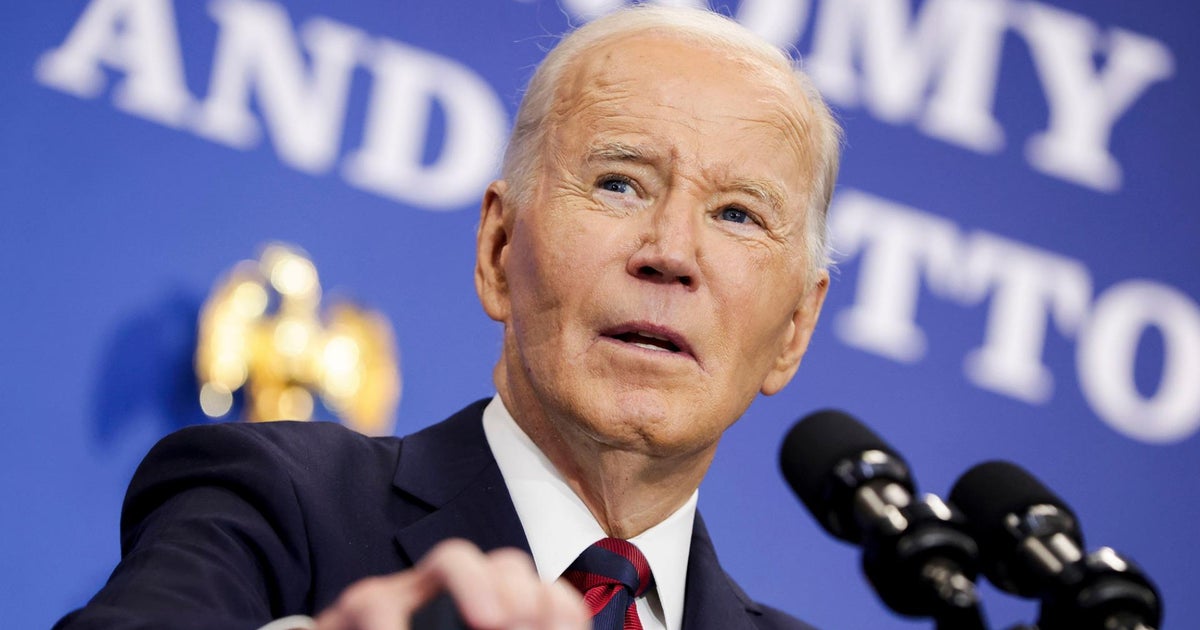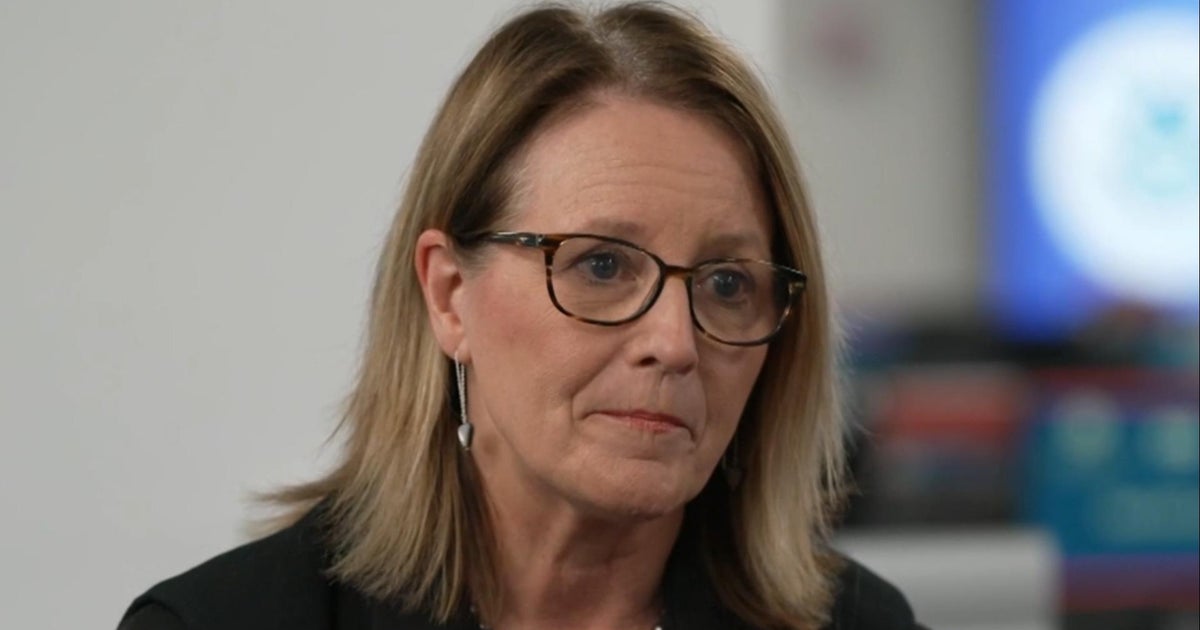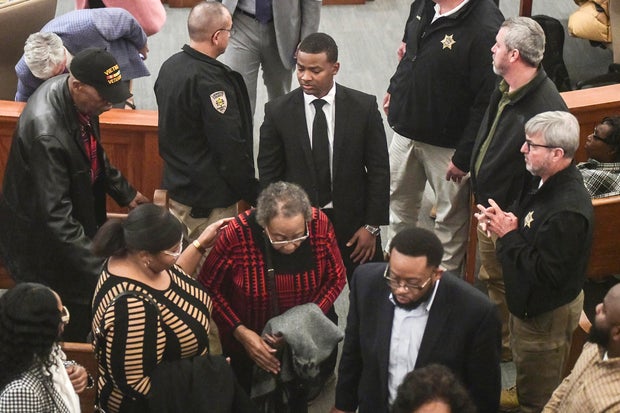CBS News
Biden commutes roughly 1,500 sentences and pardons 39 people, most ever in a single day

President Joe Biden is commuting the sentences of nearly 1,500 people who were released from prison and placed on home confinement during the coronavirus pandemic and is pardoning 39 Americans convicted of nonviolent crimes. It’s the largest single-day act of clemency in modern history.
The commutations announced Thursday are for people who have served out home confinement sentences for at least one year after they were released. Prisons were uniquely bad for spreading the virus and some inmates were released in part to stop the spread. At one point, 1 in 5 prisoners had COVID-19, according to a tally kept by The Associated Press.
“These actions represent the largest single-day grant of clemency in modern history,” the White House said.
Mr. Biden said he would be taking more steps in the weeks ahead and would continue to review clemency petitions. The second largest single-day act of clemency was by Barack Obama, with 330, shortly before leaving office in 2017.
“America was built on the promise of possibility and second chances,” Mr. Biden said in a statement. “As president, I have the great privilege of extending mercy to people who have demonstrated remorse and rehabilitation, restoring opportunity for Americans to participate in daily life and contribute to their communities, and taking steps to remove sentencing disparities for non-violent offenders, especially those convicted of drug offenses.”
The clemency follows a broad pardon for his son Hunter, who was prosecuted for gun and tax crimes. Mr. Biden is under pressure from advocacy groups to pardon broad swaths of people, including those on federal death row, before the Trump administration takes over in January. He’s also weighing whether to issue preemptive pardons to those who investigated Trump’s effort to overturn the results of the 2020 presidential election and are facing possible retribution when he takes office.
Those pardoned Thursday had been convicted of nonviolent crimes such as drug offenses and turned their lives around, White House lawyers said. They include a woman who led emergency response teams during natural disasters; a church deacon who has worked as an addiction counselor and youth counselor; a doctoral student in molecular biosciences; and a decorated military veteran.
The president had previously issued 122 commutations and 21 other pardons. He’s also broadly pardoned those convicted of use and simple possession of marijuana on federal lands and in the District of Columbia, and pardoned former U.S. service members convicted of violating a now-repealed military ban on consensual gay sex.
Rep. Jim McGovern, D-Mass., and 34 other lawmakers are urging the president to pardon environmental and human rights lawyer Steven Donziger, who was imprisoned or under house arrest for three years because of a contempt of court charge related to his work representing Indigenous farmers in a lawsuit against Chevron.
Others are advocating for Mr. Biden to commute the sentences of federal death row prisoners. His attorney general, Merrick Garland, paused federal executions. Mr. Biden had said on the campaign trail in 2020 that he wanted to end the death penalty but he never did, and now, with Trump coming back into office, it’s likely executions will resume. During his first term, Trump presided over an unprecedented number of federal executions, carried out during the height of the pandemic.
More pardons are coming before Mr. Biden leaves office on Jan. 20, but it’s not clear whether he’ll take action to guard against possible prosecution by Trump, an untested use of the power.
“My administration will continue reviewing clemency petitions to advance equal justice under the law, promote public safety, support rehabilitation and reentry, and provide meaningful second chances,” Mr. Biden said in a statement.
The president has been taking the idea seriously and has been thinking about it for as much as six months – before the presidential election – but has been concerned about the precedent it would set, according to people familiar with the matter who spoke to The Associated Press on condition of anonymity to discuss internal discussions.
But those who received the pardons would have to accept them. New California Sen. Adam Schiff, who was the chairman of the congressional committee that investigated the violent Jan. 6 insurrection, said such a pardon from Mr. Biden would be “unnecessary,” and that the president shouldn’t be spending his waning days in office worrying about this.
A president has the power to both pardon, in which a person is relieved of guilt and punishment, or commute a sentence, which reduces or eliminates the punishment but doesn’t exonerate the wrongdoing. It’s customary for a president to grant mercy at the end of his term, using the power of the office to wipe away records or end prison terms.
Before pardoning his son, Mr. Biden had repeatedly pledged not to do so. He said in a statement explaining his reversal that the prosecution had been poisoned by politics. The decision prompted criminal justice advocates and lawmakers to put additional public pressure on the administration to use that same power for everyday Americans. It wasn’t a very popular move; only about 2 in 10 Americans approved of his decision, according to a poll from The Associated Press-NORC Center for Public Affairs Research.
“The President’s categorical approach to clemency has also inspired leaders across the country to take similar action,” the White House said Thursday. “Over ten states and localities, including Maryland and Massachusetts, have issued categorical clemency for marijuana convictions, impacting hundreds of thousands of people and allowing individuals to move past their convictions and move on with their daily lives.”
CBS News
Investigators say forensic evidence ties suspect to UnitedHealthcare CEO shooting

Watch CBS News
Be the first to know
Get browser notifications for breaking news, live events, and exclusive reporting.
CBS News
Mistrial declared after jury deadlocks over killing of gay University of Mississippi student

A judge Wednesday declared a mistrial in the murder case against Sheldon “Timothy” Herrington Jr., who was accused of killing Jimmy “Jay” Lee, a gay man who was a prominent figure in the LGBTQ+ community at the University of Mississippi, in 2022. Lee disappeared and his body has never been found, but a judge declared him dead.
Jurors said they were unable to reach a verdict after over nine and a half hours of deliberation. They had been instructed to find Herrington guilty of either capital murder, first-degree murder, second-degree murder, or manslaughter by culpable negligence, or find him not guilty, CBS affiliate WREG reported. The judge said another venue may be needed for Herrington’s new trial, according to the station.
Herrington, 24, showed little emotion as he left the courtroom with his attorneys and several relatives. He remains free on bond and is still charged with capital murder, which Mississippi law defines as a killing committed along with another felony — in this case, kidnapping. Prosecutors had said they would not seek the death penalty. He faces life in prison if he is tried again and convicted.
Jurors on Wednesday were told they could also consider lesser charges of first-degree murder, punishable by life in prison; second-degree murder, 20 years to life; or manslaughter, up to 20 years.
Circuit Judge Kelly Luther said he will consult with prosecutors and defense attorneys about setting another trial.
Bruce Newman/The Northeast Mississippi Daily Journal, via AP, Pool
Both Herrington and Lee had graduated from the University of Mississippi. Lee, 20, was pursuing a master’s degree. He was known for his creative expression through fashion and makeup and often performed in drag shows in Oxford, according to a support group called Justice for Jay Lee.
Lee disappeared July 8, 2022, in Oxford, where the university is located and the trial was held.
Police arrested Herrington two weeks after Lee vanished. Investigators testified that they used warrants to obtain electronic records including explicit messages between social media accounts belonging to the two men and online searches conducted by Herrington, including one inquiring how long it takes to strangle someone.
Prosecutors said during closing arguments Wednesday that Herrington and Lee had a sexual encounter that ended badly and Lee left Herrington’s apartment. They said text messages showed that Herrington, who was not openly gay, persuaded Lee to return with the promise of more sex. Prosecutors said Lee was killed after going back.
“Tim Herrington lived a lie — lived a lie to his family,” District Attorney Ben Creekmore said. “He lied to Jay Lee to coax him over there, promising to do something with him.”
Herrington’s attorney, Kevin Horan, has said prosecutors cannot prove Lee is dead without having a body. He told jurors Wednesday that text messages showed Herrington did not lure Lee to his apartment.
“He’s the one that’s being dominant anchoring this particular conversation,” Horan said of Lee.
Lee, 20, has not contacted friends or family, and his financial transactions and once-prolific social media posts have stopped since the day he disappeared, investigators testified.
Police arrested Herrington two weeks after Lee went missing. Authorities interviewed Herington twice that day, and he gave conflicting information about the hours before Lee vanished, Oxford Police Chief Jeff McCutchen testified Tuesday.
Before officers interviewed Herrington, they had already obtained explicit messages exchanged between social media accounts belonging to Herrington and Lee during the final hours Lee was known to be alive, McCutchen said.
Google records obtained through a warrant showed that Herrington searched “how long does it take to strangle someone” at 5:56 a.m., University Police Department Sgt. Benjamin Douglas testified last week.
The final text message from Lee’s phone was sent to a social media account belonging to Herrington at 6:03 a.m. from a spot near Herrington’s apartment, McCutchen said Tuesday. A cellphone tower in another part of Oxford last located any signal from Lee’s phone shortly before 7:30 a.m., the police chief said. A security camera showed Herrington moments later jogging out of a parking lot where Lee’s car was abandoned, investigators testified earlier.
On the day Lee vanished, Herrington was also seen on security cameras buying duct tape in Oxford and driving to his own hometown of Grenada about an hour south of Oxford, police have testified.
Herrington’s relatives sat behind him in the courtroom, and Lee’s sat behind prosecutors. When Luther dismissed court after the mistrial, he instructed the two groups to leave separately.
Jurors were chosen from another county about 250 miles to the south. They heard eight days of arguments and testimony.
The judge twice urged jurors to continue deliberating when they said they were deadlocked. After the third such message, Luther declared the mistrial and thanked them for serving, adding: “I’ve asked a lot of you.”
CBS News
Senators react to FBI Director Christopher Wray’s decision to resign

Watch CBS News
Be the first to know
Get browser notifications for breaking news, live events, and exclusive reporting.







